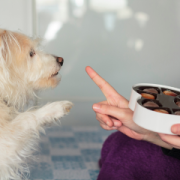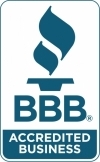March 12, 2024 –
March is Poison Prevention Awareness Month, providing us with a valuable opportunity to discuss the importance of keeping our pets safe around potentially harmful substances. There are a handful of everyday household items and foods that can pose a threat to our pets’ health, and with simple intervention and awareness, we can ensure the well-being of our beloved furry companions.
Human Food
If you’re one who likes to occasionally give your pet a yummy-people-food-treat (me too!), please keep in mind the foods that are safe and unsafe for pets. Regarding food that is safe, ensure it is unseasoned, cut into small pieces, and given sparingly in small portions. Remove seeds, cores, stems, and peels from fruit, and meat should be lean, cooked, and free of bones.
Safe: Apples, bananas, beef, blueberries, broccoli, cantaloupe, carrots, cauliflower, celery, cheese, chicken, cooked pumpkin, green beans, kiwi, peanut butter (without xylitol), pineapple, popcorn, pork, strawberries, and turkey.
Unsafe: Alcohol, avocados, chocolate, coffee, garlic, grapes/raisins, macadamia nuts, onions, products containing xylitol, and raw yeast bread dough.
These are not exhaustive lists of safe and unsafe food for pets – please consult with your veterinarian to discuss your pet’s specific needs.
Preparation
Accidental poisoning of a pet can happen quickly, sometimes in a matter of seconds. By taking the following preventative measures, we can reduce the risk of our pet ingesting poisonous substances:
- Keep medicine, household cleaners, pesticides and automotive products locked up or stored out of reach of pets and children.
- Never give medication or supplements to your pet without first consulting your veterinarian – what’s helpful to humans can be dangerous or even deadly to pets.
- Always read the label before using any flea control product on or around your pet. For example, flea products labeled “For Dogs Only” can cause serious or life-threatening illness if used on cats.
Along with these tips and tricks, here is a list of potentially poisonous household items: Prescription and over-the-counter medications, personal care products (toothpaste, deodorant, gel, etc.), cleaning products, glues and adhesives, batteries, mothballs, gasoline, antifreeze, pesticides and herbicides, and recreational drugs/tobacco products. Additionally, several houseplants are toxic to dogs and cats, including lilies, philodendrons, and poinsettias. Please consult with your veterinarian about which plants your pet should avoid.
What to do in case of emergency?
In the event that your pet chews on a seemingly harmless plant, or gets into a household cleaning product, call your veterinarian and follow their next steps, which may include taking your pet in. If you cannot get a hold of your veterinarian, the ASPCA Animal Poison Control Center hosts a 24/7 emergency hotline and can provide timely support: 888.426.4435. This hotline is staffed by full-time veterinarians, including board-certified veterinary toxicologists. Be prepared to share your pet’s basic information and details of the substance/situation at hand.
We hope this information will make your life as a pet parent more enjoyable, less stressful, and most importantly, help to protect your pet from poisonous substances.





